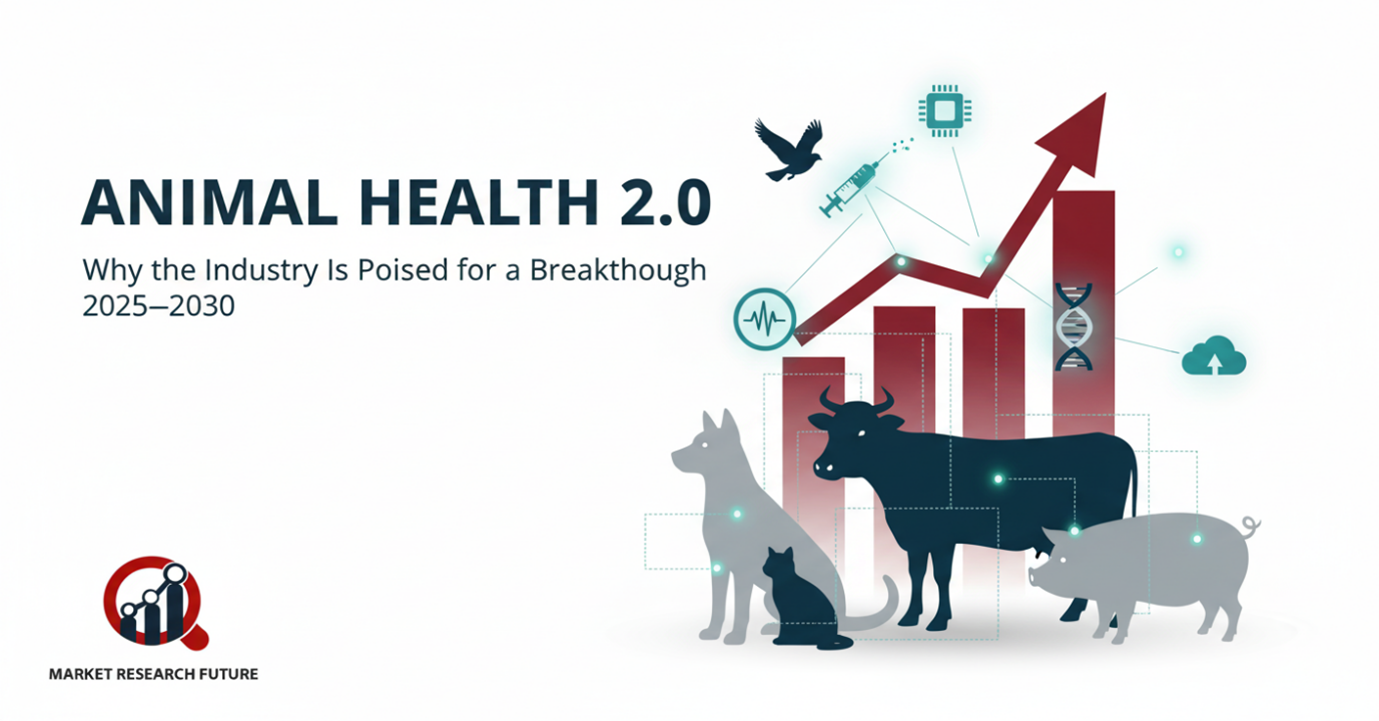
Animal Health 2.0: Why the Industry Is Poised for a Breakthrough (2025–2030)
The animal health industry is no longer a quiet corner of the healthcare sector. From vaccines and diagnostics to nutritional supplements and advanced veterinary care, it has become central to safeguarding both livestock and companion animals. Farmers, breeders, pet owners, and welfare organisations all depend on animal health solutions—making this market a vital part of the global economy.
The animal health industry supports livestock and companion animals through vaccines, pharmaceuticals, diagnostics, nutritional products, and veterinary services. It secures the food supply, improves welfare for animals, and strengthens the bond between people and their pets. The animal health industry is expanding globally due to the rise of pet ownership, demand for animal protein, advancements in technology and awareness of disease preventive care. While North America is the largest market, Asia-Pacific, due to increasing awareness and income, is the fastest-growing market. Innovation like tele-veterinary medical care, pet insurance, and AI pet diagnostics will drive market growth in the coming years, despite the industry challenges of high R&D costs, climate change-related outbreaks of diseases, and regulatory and market access challenges.
The demand for animal products continues to rise, people are aware of zoonotic diseases, biotechnology is on the rise, and there are more and more pets in towns and cities across the globe. Innovations in AI diagnostics, virtual vet services, health tracking devices, and advanced nutrition are shifting from reactive to more preventative animal care. The demand for animal care and the improved bio-security improve care for the animals. More advanced animal care tools like AI diagnostics and virtual vet services are shifting the care from reactive to more preventative.
Trends That Will Shape the Coming Years:
- The Rapid Growth of Pet Insurance
Over the past few years, the rise in the cost of pet healthcare has led many pet owners to start getting pet insurance. Thailand and the rest of Southeast Asia are experiencing pet insurance growing by over 10%!
- The One Health Approach
The One Health approach focuses on the interconnected health of humans, animals, and the environment. Governments and various NGOs are increasing their actions towards addressing zoonotic diseases, antimicrobial resistance, and diseases driven by climate change.
- Technological Advances
AI pet diagnostics, smart collars, and slaughterhouse data processors are just a few examples of the many innovations aimed towards livestock and pet disease prevention.
- Consumer-Based Sustainability
From the rise of the vegan and vegetarian movements, and NGOs like PETA, livestock and factory farming have come under major scrutiny. In order to protect their image, many of these farms have started to modify their practices, silo antibiotic-free livestock with non-antibiotic-free livestock, to lower antibiotic resistance.
- Increased Research and Development
In veterinary medicine, biologics, precision nutrition, and sustainable feed additives are growing in popularity and creating a major area of growth.
Challenges Ahead:
- High and prolonged regulatory approval processes.
- Cost barriers in emerging markets, where veterinary care is still considered a luxury.
- Unpredictable climate risks leading to outbreaks of vector-borne diseases.
- Intensified competition is rising from established players and startups.
Future Prospects
The future of improving and changing the approach to taking care of our animals is really promising. With preventive care, digital services, and insurance, more people will have access to high-quality treatments for animals. The Asia-Pacific region will continue to be the fastest-growing region for this type of service, and with the advancements of Biotech and AI, will provide more global opportunities. By 2030, taking care of animals will be seen as far more critical than just a niche industry and will be a prominent part of global health and securing food for the world.